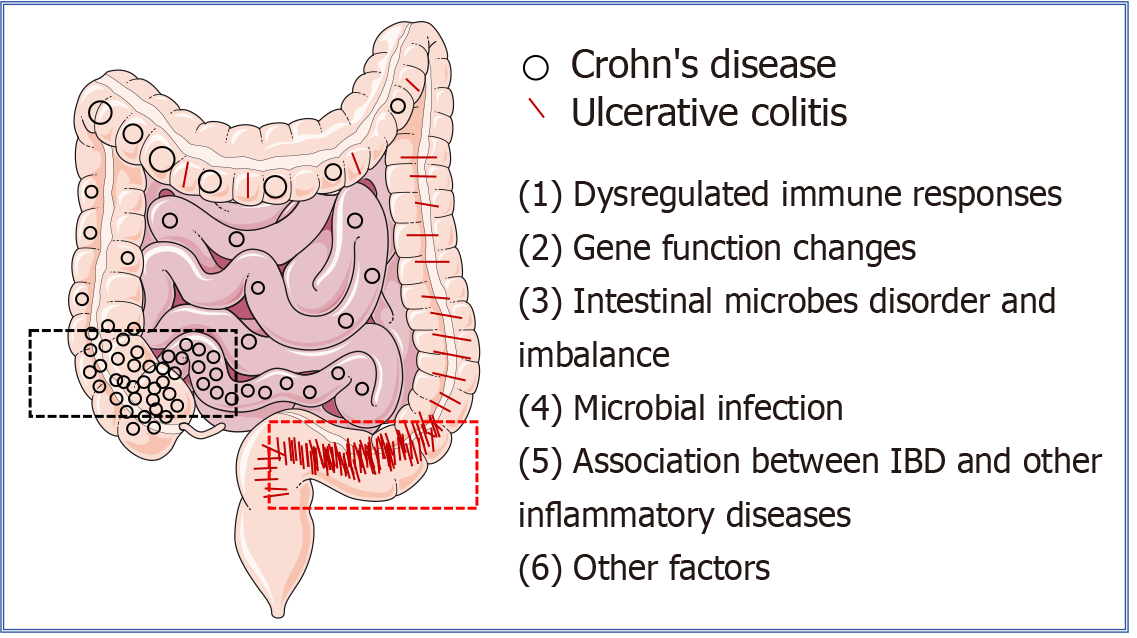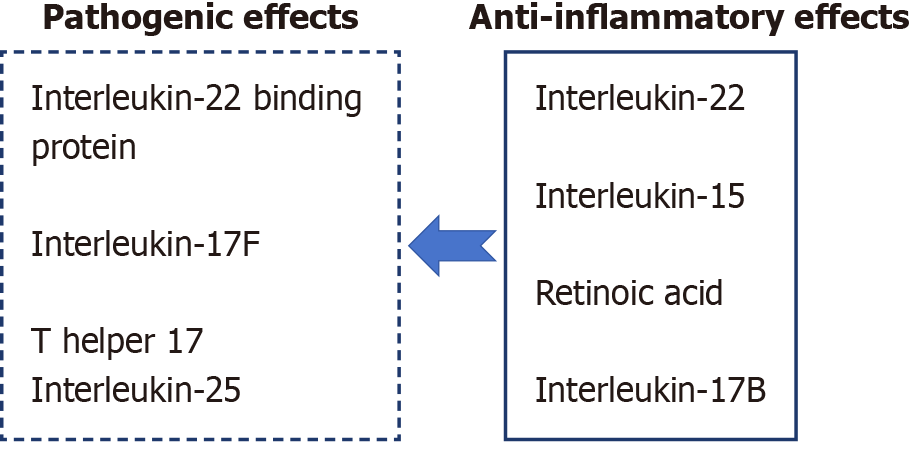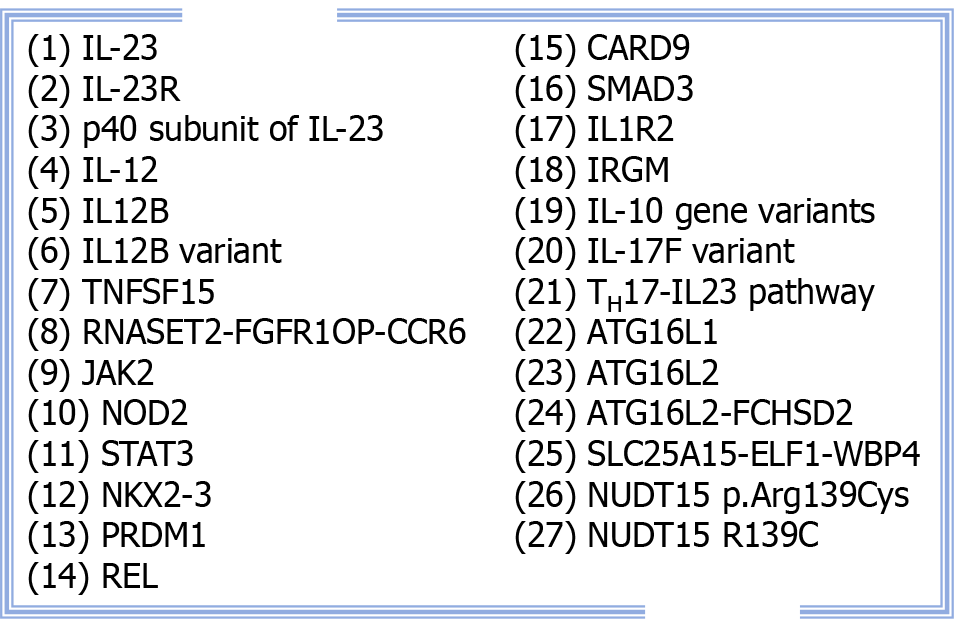Copyright
©The Author(s) 2025.
World J Gastroenterol. May 21, 2025; 31(19): 106406
Published online May 21, 2025. doi: 10.3748/wjg.v31.i19.106406
Published online May 21, 2025. doi: 10.3748/wjg.v31.i19.106406
Figure 1 Study on the pathogenesis between Crohn’s disease and ulcerative colitis.
IBD: Inflammatory bowel disease.
Figure 2
Key cytokines and their functions of immune system for the pathogenesis of inflammatory bowel disease.
Figure 3 Gene function changes for the pathogenesis of inflammatory bowel disease.
ATG16L1: Autophagy-related 16-like 1; CARD9: Caspase-recruitment domain 9; CCR6: CC-motif chemokine receptor 6; ELF1: Elongation factor 1; FCHSD2: FCH and double SH3 domains protein 2; FGFR1OP: Fibroblast growth factor receptor 1 oncogene partner; IL: Interleukin; IRGM: Immunity-related GTPase M; JAK2: Janus kinase 2; NKX2-3: NK2 transcription factor related, locus 3; NOD2: Nucleotide-binding oligomerization domain 2; NUDT15: Nudix hydrolase 15; PRDM1: PR domain zinc finger protein 1; SLC25A15: Solute carrier family 25 member 15; STAT3: Signal transducer and activator of transcription 3; TNFSF15: Tumor necrosis family superfamily member 15; WBP4: WW domain-binding protein 4.
- Citation: Yang QH, Zhang CN. Comparative study on the pathogenesis of Crohn’s disease and ulcerative colitis. World J Gastroenterol 2025; 31(19): 106406
- URL: https://www.wjgnet.com/1007-9327/full/v31/i19/106406.htm
- DOI: https://dx.doi.org/10.3748/wjg.v31.i19.106406











